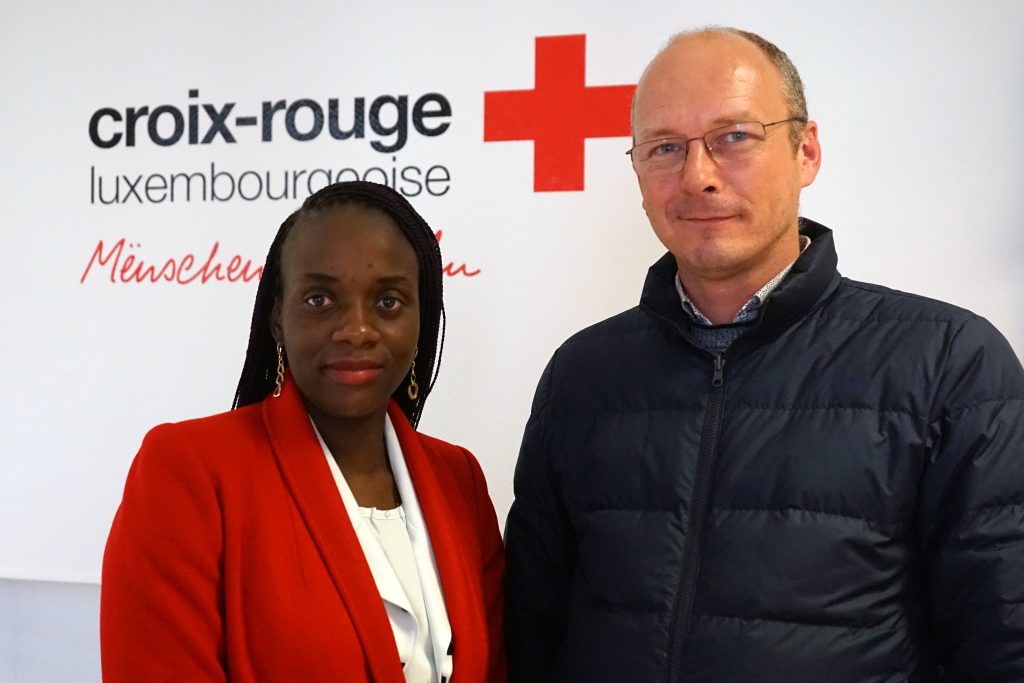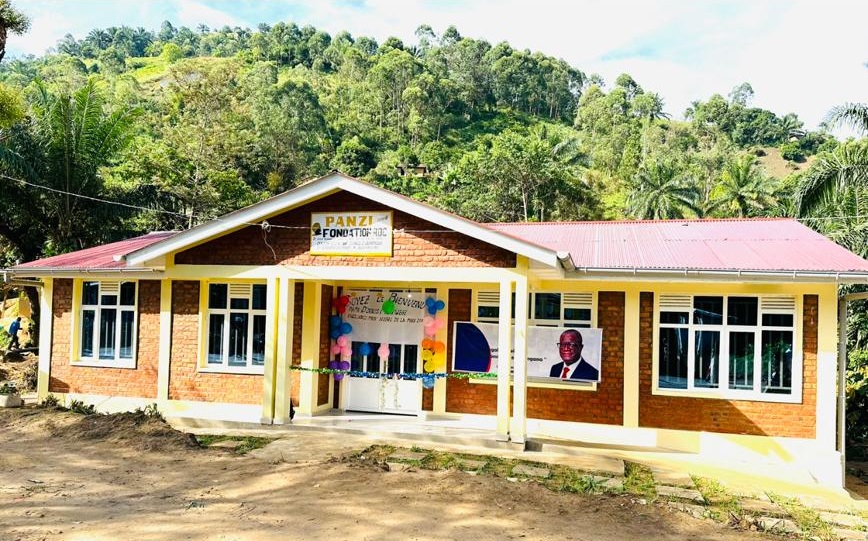29 April 2023

On 26 April 2023, the Bunyakiri legal clinic in the Democratic Republic of Congo (DRC) was inaugurated. Supported by the Luxembourg Red Cross, this Panzi Foundation facility will provide legal assistance to survivors of sexual violence, in addition to the clinic in Kavumu, which was opened at the end of 2022.
The Panzi Foundation is an NGO which, since 2008, has been working alongside Dr. Mukwege to support survivors of sexual violence in their journey. After receiving medical care and psycho-social follow-up, it provides them with legal support and accompanies them in their socio-economic reintegration. At least 5,000 women are supported each year through its forty or so projects.
We met Marie-Grace Kaboyi, project coordinator of the Panzi Foundation, and Alexander Jacoby, in charge of DRC projects at the Luxembourg Red Cross.
Marie-Grace Kaboyi (MGK) : On the legal side, we provide survivors of sexual violence with listening, assistance and support, for example in writing complaints. Raising awareness of their rights is also important. When a child is born, it must be registered with the civil registry within three months. If not, a suppletive judgement – which has to be paid for – is necessary. Thus, 300 suppletive judgements were issued with the support of the Luxembourg Red Cross in 2022.
With the aim of socio-economic reintegration, survivors of sexual violence can follow literacy courses and then choose a course of study to learn a trade such as soap-making, sewing, hairdressing, leatherwork, pastry-making or carpentry. They can also benefit from support in agro-pastoral seeds.
In addition, we support an average of 500 solidarity mutuals (MUSO), 80 of which are supported by the Red Cross. The MUSOs are circles of women who have experienced the same suffering and who support each other psychologically, socially and financially once they have finished their course. But other women are also part of it, as well as men, thanks to our awareness-raising work on positive masculinity. They are proud of this because it shows that they are taken seriously by the community. Some MUSOs have excelled and are now fully independent.
MGK : One of our biggest challenges is security. There is still a lot of armed conflict in the DRC and gender-based violence is widespread. Given the mission of the Panzi Foundation – to advance change and end rape as a weapon of war – we are sometimes threatened. We need more involvement from authorities. On top of that, access to beneficiaries is sometimes made difficult by the poor state of the roads.
Another issue is related to the economic aspect. We are launching income-generating initiatives that would allow us to be less dependent on our partners. For example, we have set up a juice production workshop where women harvest, transport and process the fruit. But as we want to pay them as much as possible, the activity is difficult to make cost-effective.
MGK : To develop food processing such as fruit juice production, our long-term goal is to become a cooperative.
AJ : We want to develop activities that serve as training, job creation and income generation, such as carpentry. It has enabled survivors of sexual violence to build their own doors, windows and furniture for a year. They have made by themselves the doors and windows for the houses we have built as part of the project. It’s amazing that they were able to make 140 windows and 20 doors in such a short time! With the presence of the hospital and the legal clinics, beds and other furniture are needed. So we can create synergies. This year we will set up a big workshop with machines and want to distribute tool kits. The beneficiaries will be able to produce furniture for themselves and respond to community requests in this area. It is a source of pride for them to be able to do a job that has long been assigned to men.
AJ : I am pleased to see the motivation and collaboration that this project has generated, both from our partners and from other actors. For example, the Centre de Réhabilitation Château de Colpach, the Luxembourg Bar Association and the Centre Hospitalier de Luxembourg have already participated by training staff from the Panzi hospital and legal clinics or by providing equipment. There is a great dynamic of collaboration between all these actors, the Panzi hospital and the Panzi Foundation and I would like to thank you for your support.
MGK : I would like to thank the Luxembourg Red Cross for its support, which has made it possible to put a smile on the faces of the beneficiaries. These are women who have long been marginalized and stigmatized and had nowhere to live decently. Today, you can see in their faces that their lives have changed.
I would like to thank the Luxembourg Red Cross for its support, which has made it possible to put a smile on the faces of the beneficiaries.
Marie-Grace Kaboyi
